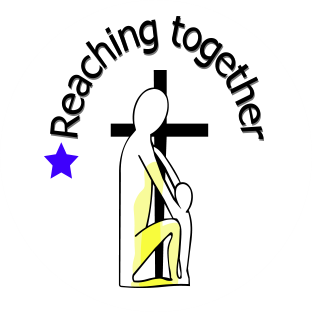Intent, Implementation and Impact
Intent
How do we inspire our children?
At Ivington C.E. Primary School, it is our intent to develop enthusiasm, confidence, joy, creativity and collaboration in all children, through music.
In Music, our intent is first and foremost to help children to feel that they are musical, and to develop a life-long love of music. We focus on developing the skills, knowledge and understanding that children need in order to become confident performers, composers, and listeners. Our curriculum introduces children to music from all around the world and across generations, teaching children to respect and appreciate the music of all traditions and communities. Our school population does not reflect a wide range of ethnic or cultural backgrounds, so it is important for our children to understand and celebrate the huge culturally diverse influences in music as well as recognise the successes of our own local and national influences in music across the world. It is our intent that the children experience growth in awareness and empathy and an appreciation of difference, diversity and individual opinion, through varied stimuli in their music lessons. This in turn develops personal responsibility within school and the wider community, especially when teamed with British Values.
Music is a universal language that embodies one of the highest forms of creativity. It is our intention to “engage and inspire pupils to develop a love of music and their talent as musicians, and so increase their self-confidence, creativity and sense of achievement” – Department of Education, National Curriculum.
As pupils progress, they should develop the musical skills of singing, playing tuned and untuned instruments, improvising and composing music, and listening and responding to music to the best of their ability. They will develop an understanding of the history and cultural context of the music that they listen to and learn how music can be written down. Through music, our curriculum helps children develop transferable skills such as team-working, leadership, creative thinking, problem-solving, decision-making, and presentation and performance skills. These skills are vital to children’s development as learners and have a wider application in their general lives outside and beyond school. Through our cross-curricular topics, children make links for themselves (between genres, styles, composers), use music for self-expression and creativity.
We are committed to ensuring children understand the value and importance of music in the wider community, and are able to use their musical skills, knowledge, and experiences to involve themselves in music, in a variety of different contexts, both inside and outside the classroom and across a wide variety of historical periods, styles, traditions, and musical genres. In lower KS2, children are given the opportunity to learn an instrument via the Herefordshire Music Department (Encore Enterprises).
Implementation
How do we organise our teaching and learning?
Our planning is informed by substantive and disciplinary knowledge which follows the spiral curriculum model, where previous skills and knowledge are returned and built on each year. Children progress in terms of tackling more complex tasks and doing more simple tasks better, as well as developing understanding and knowledge of the history of music, staff, and other musical notations, the interrelated dimensions of music and more. For this we use MUSIC EXPRESS and the KAPOW Schemes of Work.
Through these schemes, we take a holistic approach to music, in which the individual strands below are woven together to create engaging and enriching learning experiences:
Listening and evaluating
Creating sound
Notation
Improvising and composing
Performing
Each unit of work combines these strands within a topic designed to capture pupils’ imagination and encourage them to explore music enthusiastically.
At Ivington, we ensure that;
Singing is at the heart of our school
Children will be taught how to sing fluently and expressively
Children can play tuned and untuned instruments accurately and with control
A sound-before-symbol approach is used but scores are provided as an understanding of notation is introduced to the children
Children will learn to recognise, demonstrate and name the interrelated dimensions of music - pitch, duration, tempo, timbre, structure, texture and dynamics - and use these expressively in their own improvisations and compositions
Improvising with the song using voices and instruments occurs in some Units of Work
Composing with the song, using instruments occurs in some Units of Work
Impact
How does the children's learning help them flourish?
As our pupils progress our aim is to enable them:
to make links for themselves,
express opinions and preferences
articulate their thinking using subject-specific vocabulary.
Have a secure understanding of music and its influence on different aspects of the community, spiritually, socially and culturally.
We use both formative and summative assessment throughout our music curriculum to ensure that children are learning more and remembering more.
We want our pupils leaving Ivington being confident in their musical ability and able to;
✓ Be confident performers, composers and listeners and will be able to express themselves musically at and beyond school.
✓ Show an appreciation and respect for a wide range of musical styles from around the world and will understand how music is influenced by the wider cultural, social, and historical contexts in which it is developed.
✓ Understand the various ways in which music can be written down to support performing and composing activities.
✓ Demonstrate and articulate an enthusiasm for music and be able to identify their own personal musical preferences.
✓ Meet the end of key stage expectations outlined in the National curriculum for Music.
MOST OF ALL, WE WANT THEM TO ENJOY LISTENING TO AND MAKING MUSIC!
